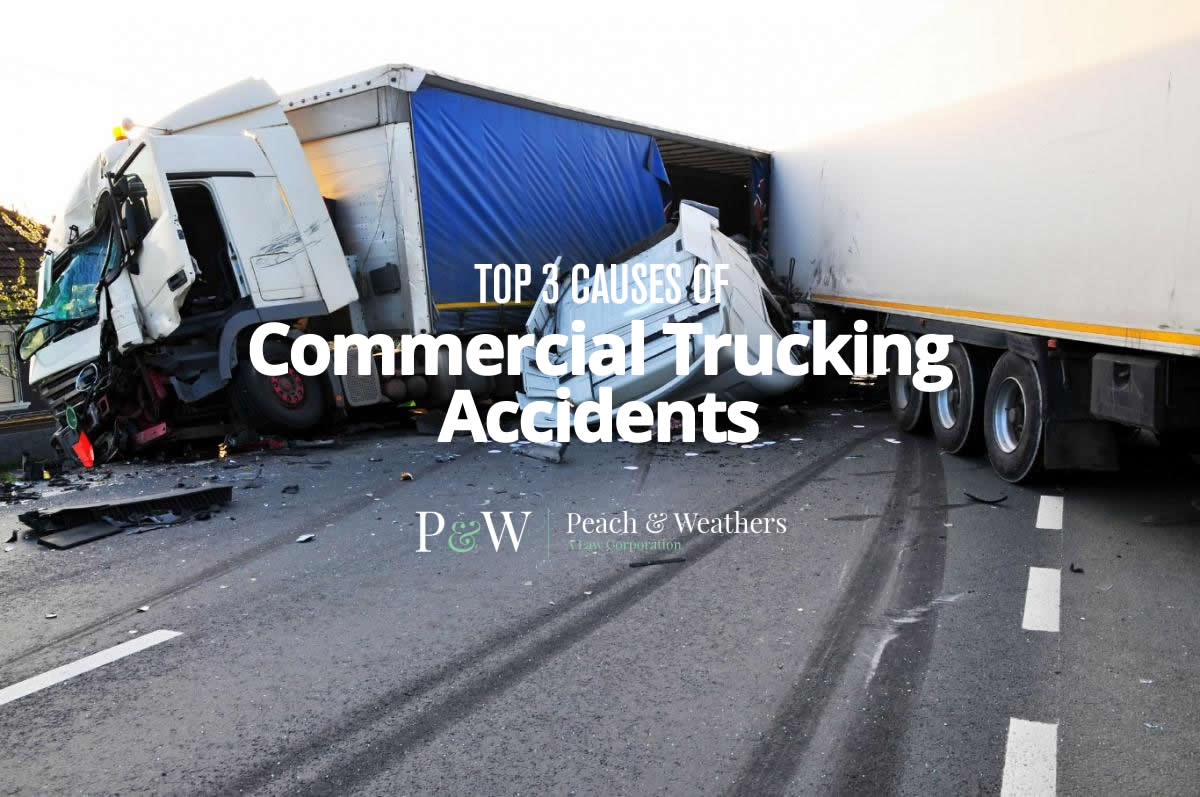
Often, there is no one factor at play when a truck accident occurs. Instead, it is a combination of events leading up to that single, catastrophic event. For instance, a trucker might fail to get adequate sleep and then become distracted by his or her smartphone while trying to stay awake. Then, a car makes an emergency stop, and the trucker fails to brake in time.
When police officers, insurance companies and your personal injury lawyer investigate the accident, we often try to figure out what those primary factors are. Over time, researchers have gathered these findings in the field to determine what factors increase the likelihood of a truck accident taking place. Here are the top three you need to be mindful of.
1. Brake Problems
According to a study conducted by the Federal Motor Carrier Safety Administration, brake problems play a role in 27% of truck accidents. This represents the largest problem identified by the FMCSA that contributes to crashes. Note that, in most cases, brakes do not wear out immediately. They take time to become less and less effective, giving clear signs to drivers that they need to be serviced or replaced.
StateFarm highlights the following obvious signs that brakes are about to fail:
- Strange noises, such as grinding, scratching, squeaking or scraping
- Vehicle pulling to the left or right when stopping
- Increased inability to stop quickly or on time
- Warnings such as dashboard brake indicators while driving
Note that truck drivers have a responsibility to inspect their vehicles before heading out on the road. If they determine fixes are in order, they need to inform their employers or clients. Some employers might even provide complementary servicing if truckers determine that the vehicle is not operating as it should, or they might create a maintenance schedule truckers need to stick to.
2. Speeding
Considering that the first big problem is stopping, identifying speeding as the second most common factor is terrifying, to say the least. Driving too fast relative to the road or weather conditions account for 23% of truck accidents. Speed also compounds the potential consequences of a large truck plowing into slow-moving or stationary traffic.
One way states and cities try to reduce this problem is to set lower speed limits for trucks and other vehicles over a specific size or weight. According to a study published by the U.S. National Library of Medicine, states have had the right to do this since 1995. Unfortunately, as your attorney might share, truckers do not always follow the speed limits set for them. Here are some important things to note:
- States with higher speed limits tend to experience higher fatality rates from truck accidents.
- The most dangerous speed limit threshold for roads shared with truckers is 70 mph.
- If all states dropped speed limits to 55 mph, annual fatalities might fall by roughly 561.
3. Unfamiliar Roadways
Some truckers only drive within their cities or states. After a while, they become accustomed to their routes and know their way around without GPS. Then, there are long haul truckers who might drive within a larger region, such as the Northeast, or might go from one end of America to the next. Some also drive into Canada or even Mexico. Unfamiliar routes contribute to 22% of truck crashes.
For starters, truckers might end up turning onto roads they should not be on or might go the wrong way down a one-way street. Focusing on the GPS while they try to find their way around also creates an added distraction. All it takes is a few seconds of looking away from the road for an emergency ahead to require a stop the trucker cannot make.
When drivers are unfamiliar with roadways, they might also not know about specific idiosyncrasies that can create problems. For instance, the road might go up a mountain and prove too narrow or winding. The trucker might also encounter ice.
The Bottom Line
If you or someone you know has suffered injuries in a truck accident, you might worry about what to do next. Some people decide to put off the personal injury claims process for as long as possible so they can focus on recovery, which often coincides with grieving the loss of loved ones who did not survive the crash.
The downside to this is that recovery can take years. During that time, medical bills pile up, and your opportunity to claim compensation to cover this might pass you by. California Courts provide just a brief two-year window from the date of the injury to file a personal injury claim.
Would you like to get this process started sooner rather than later? Contact Peach & Weathers for a free consultation today at 909-889-0471.

